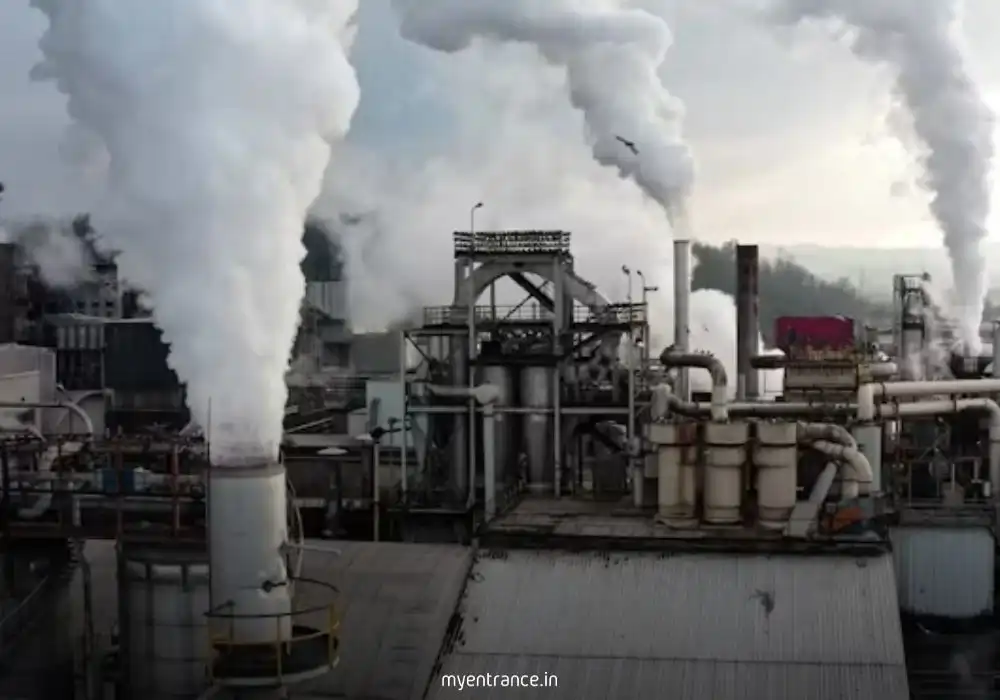Translate Language
Supreme Court Boosts Pollution Boards: Now Seek Damages & Bank Guarantees! (UPSC/SSC Focus)
In a landmark verdict, the Supreme Court has supercharged India’s fight against environmental damage. The ruling empowers pollution control boards to seek financial compensation for ecological harm and secure bank guarantees against future violations. This transformative decision reshapes environmental governance—a critical topic for UPSC, PSC, SSC, and state-level exams.

Headline: SC Empowers Pollution Boards: Now Demand Damages & Bank Guarantees
Listen carefully, future administrators! The Supreme Court just delivered a masterclass in environmental accountability. In a decisive move, it overturned a restrictive Delhi High Court order, affirming that pollution control boards can legally:
Demand compensation for ecological damage already caused by industries or projects.
Require bank guarantees upfront from potential polluters as a “preventive shield” against future harm.
This isn’t about petty fines—it’s about restorative justice. The Court rooted this power in Sections 33A (Water Act) and 31A (Air Act), emphasizing that boards must act when environmental harm is proven or imminent. Crucially, it ties this authority to two bedrock principles you’ve studied:
Polluter Pays: Violators bear the cost of ecological restoration.
Precautionary Principle: Prevent damage before it occurs.
But note: Boards can’t impose penalties arbitrarily. The SC clarified that action is valid only when environmental damage is scientifically established or clearly impending. This transforms regulators from passive watchdogs into proactive custodians of our ecosystems.
Why This Matters for Exams:
UPSC/PSC Mains: Directly links to GS Paper III (Environmental Pollution, EIA, Governance).
Prelims: High-probability current affairs topic (national importance).
Interview Stage: Tests conceptual clarity on “Polluter Pays” vs. “Precautionary Principle.”
Analytical Edge: Demonstrates judiciary’s role in strengthening environmental governance.
State Exams: Kerala PSC (KAS), TNPSC, etc., prioritize local environmental laws and SC judgments.
Questions & Answers:
Q1: How does the SC’s recent ruling redefine the powers of pollution control boards?
A1: It authorizes boards to claim compensation for existing environmental damage and demand bank guarantees as advance protection against potential future harm, moving beyond mere punitive penalties.
Q2: Which legal principles did the SC cite to justify empowering pollution boards?
A2: The “Polluter Pays Principle” (making polluters cover restoration costs) and the “Precautionary Principle” (preventing harm before it occurs).
Q3: What limitation did the SC impose on boards using these powers?
A3: Boards must scientifically establish actual or imminent environmental damage—powers can’t be invoked for minor procedural violations.
Q4: Which High Court judgment did the SC overturn in this case?
A4: The Delhi HC’s ruling that held only courts—not pollution boards—could levy environmental compensation.
Q5: How might this judgment impact industries?
*A5: Industries face stricter financial accountability, needing bank guarantees before high-risk operations, ensuring quicker remediation funds if they cause ecological harm.*
Get 3 Months Free Access for SSC, PSC, NIFT & NID
Boost your exam prep!
Use offer code WELCOME28 to get 3 months free subscription. Start preparing today!















